About ENIUGH
About
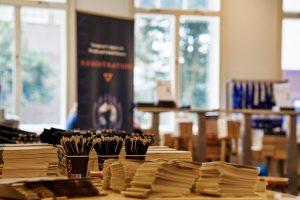
The European Network in Universal and Global History (ENIUGH) was founded in 2002 by transforming the Karl-Lamprecht-Gesellschaft e.V. into an international organisation based on German legislation for non-profit associations. ENIUGH promotes research and teaching in world and global history, especially among scholars based in Europe. It was formed to answer the demand for efficient cooperation in this field. As a multilingual platform of communication, it has become an important channel for scientific exchange within Europe while offering many opportunities to connect with colleagues from other world regions. Building on the long tradition of world history writing in Europe, ENIUGH serves as a forum for the multiplicity of topical and methodological approaches to the study of past and current processes of cross-cultural interaction and entanglements in contemporary historical and interdisciplinary scholarship. The network advocates the transcending of former Eurocentric, teleological and universalist assumptions, thus seeking to help “provincialise“ the continent’s past within a global perspective. It is engaged in strengthening the linkages between the manifold institutions in Europe that contribute to a better understanding of the historicity of today’s globally integrated world. The main activities of ENIUGH are:
- to regularly organise a European Congress on themes of World and Global History
- to publish with its periodicals COMPARATIV, a peer-reviewed paper based open access journal that is issued six times a year with English and German contributions, and CONNECTIONS, a peer-reviewed e-journal publishing up to 30 articles a year, informing about conferences and workshops, prizes and new books, and serving as a platform for thematic discussions of interest historians and scholars from area studies
- to offer administrative help for bi- and multilateral cooperation in the fields of Masters and PhD programmes
Publications
ENIUGH actively promotes research in world, global, comparative and transnational history by publishing scholarly articles, book reviews, announcements of conferences and workshops as well as shorter interventions in the debate on methods and theoretical approaches. The main periodicals of the network are COMPARATIV. A Journal for Global History and Comparative Studies and Connections. A Journal for Historians and Area Specialists. COMPARATIV (founded in 1991) serves as an intellectual platform for the formation of an interdisciplinary group of junior and senior scholars who explore world and global history. It focuses on past and present globalizations. Their manifold social, cultural, political and economic aspects are addressed from the perspectives of both change over time and variation over space (their different processes of territorialization and spatiality: regional, national, European and worldwide). Comparative perspectives are taken up, as are studies on cross-cultural entanglements, exchanges and transfer. Comparativ publishes articles in German, English and French.
The electronic complementary of Comparativ is Connections is a peer-reviewed e-journal in the field of area, transnational, transregional, world and global histories, edited on behalf of ENIUGH by Matthias Middell (Global and European Studies Institute and Leipzig Research Centre Global Dynamics (ReCentGlobe)) and Katja Castryck-Naumann (Leibniz Institute for the History and Culture of Eastern Europe). Connections is a part of the H-Soz-u-Kult, Clio-Online and H-Net network, which acts as an information and communication platform. Connections continues the work of geschichte.transnational, which has been published as a review forum since 2004. Today, Connections, with its 11.000 subscribers broadens the perspective by also addressing global and transregional as well as transnational entanglements that increasingly characterize our present world. The journal encourages contributors to transcend a traditional understanding of space as a container within which societal processes occur and to instead investigate the dynamics resulting from such entanglements. Connections, however, does not solely concentrate on border-crossing flows but also looks at attempts to reorganize control over and regulation of such flows by all kinds of politics, among them prominently the politics of respacing. In this capacity, the journal organizes interdisciplinary cooperation between historians, social scientists and specialists in the various area studies as well as in the newly emerging field of transregional studies.
Series “Global History and International Studies”
Book Series with Bloomsbury
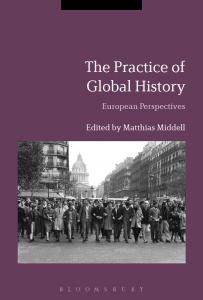
The ENIUGH-Palgrave “Handbook of Global History”
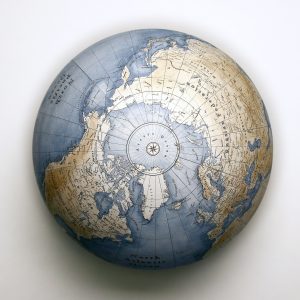
The ENIUGH-Palgrave Handbook of Global History is a close cooperation between the European Network in Universal and Global History and Palgrave Macmillan and aims at providing a comprehensive, up-to-date, and continuously revised overview of the flourishing and mushrooming field of global history, which is less defined by its subject and more by its perspective on nearly all historical processes, structures, and events.
For more information click here.
Walter-Markov-Prize
As a network of historians and their colleagues from neighbouring disciplines, ENIUGH continues a long tradition of studies on the past’s transnational and global dimensions. To foster and to refresh this tradition, ENIUGH awards the Walter-Markov-Prize – endowed with € 1,500 – for an outstanding master’s or PhD thesis. The prize honours an outstanding thesis that contributes to the research fields of Walter Markov: the comparative exploration of revolutions; social movements and decolonisation processes in Africa, Asia, and Latin America; historiographical traditions in various national contexts; and academic internationalisation in the course of the 20th century. The successful applicant will receive € 1,500 as support for the publication of his/her master’s or doctoral thesis.
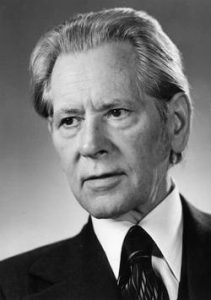
Walter Markov (1909–1993) was a historian whose life and thinking was influenced by the shattered German past. In trying to integrate his experiences of National Socialism, his decade-long imprisonment in a state penitentiary under the Third Reich, and the following Cold War which he looked at from the Eastern side, his works sought to integrate the intellectual potentials of the historical thinking of Karl Marx and impulses from French social history around the Annales school.
Markov’s way of addressing history can be best described as “history from below”. Examining revolutions and revolutionary moments in history, he became one of the most important German historians working on the French Revolution. In continuing the Leipzig tradition in world and global history, initiated by Karl Lamprecht and the Institute for Cultural and Universal History, Markov became the director of this institute in 1949 and tried to bring all area studies at his university under one roof for comparative studies. Pursuing international cooperation with scholars on the other side of the iron curtain – especially with scholars from Latin America, Africa (where he was the first German guest professor), and Asia – he hoped to stand against any withdrawal of his university from border-crossing dialogue and mutual learning. (Photo courtesy of the Archive of Leipzig University, N0 4964)
Previous Prize Winners
- Kim Sebastian Todzi (2023): Der Woermann-Konzern und der deutsche Kolonialismus, 1837-1916 (The Woermann Company and German Colonialism, 1837-1916)
- Immanuel Harisch (2023): Great Hopes, False Promises. African Trade Unions in the World of Organized Labor. Institutions, Networks, and Mobilities during the Cold War 1950s and 1960s
- Andreas Greiner (2021): Tensions of transport. Human porterage and state formation in colonial East Africa, c. 1890–1914
- Siga Maguiraga (2021): Les étudiants maliens en Turquie de 2006 a nos hours : Mobilité et trajectoires socio-éducatives des jeunes ouest-africains
- Eric Burton (2019/2020): Tansanias ‘Afrikanischer Sozialismus’ und die Entwicklungspolitik der beiden deutschen Staaten: Akteure, Beziehungen und Handlungsspielräume, 1961-1990 (further info)
- Johanna Wolf (2017): “Assurances of Friendship”. Metallgewerkschafter während der Globalisierungsprozesse der langen 1970er-Jahre am Beispiel der Schiffbauindustrie
- Lukas Schemper (2017): Humanity Unprepared: International Organization and the Management of Natural Disaster (1921-1991)
- Katja Naumann (2013): Laboratorien der Weltgeschichtsschreibung. Lehre und Forschung an den Universitäten Chicago, Columbia und Harvard 1918 bis 1968
- Christoph Kalter (2011): Die Entdeckung der Dritten Welt und die neue radikale Linke in Frankreich
- Friedemann Pestel (2009): Weimar als Exil. Erfahrungsräume französischer Revolutionsemigranten 1792-1803
- Astrid Windus (2003): Afroargentinier und Nation. Konstruktionsweisen afroargentinischer Identität im Buenos Aires des 19. Jahrhunderts
- Oliver B. Hemmerle (2001): ‘Der arme Teufel’ – Eine transatlantische Zeitschrift zwischen Arbeiterbewegung und bildungsbürgerlichem Kulturtransfer um 1900 & Ludger Wimmelbücker (2001): The Kilimanjaro Region. Production and Living Conditions, c. 1800-1920
- Knuth Matthias Dethlefsen (1999): British Presence and Rule in China between 1919- 1937
- Christian Koller (1999): Von Wilden aller Rassen niedergemetzelt. Die Diskussion um die Verwendung von Kolonialtruppen in Europa zwischen Rassismus, Kolonial- und Militärpolitik 1914-1930
- Thomas Erdmann Fischer (1997): Geschichte der Geschichtskultur. Über den öffentlichen Gebrauch der Vergangenheit von den antiken Kulturen bis zur Gegenwart
- Norbert Kersken (1994): Geschichtsschreibung im Europa der Nationes. Nationalgeschichtliche Gesamtdarstellungen im Mittelalter
Previous Honorary Distinctions
- Ruth Ennis (2023): The “Migrant” and her “Trafficker”: European Empire, a Metaphor and the Law (1866-1881)
- Michael Rösser (2023): Prisms of Work – Labour, Recruitment and Command in German East Africa”
- Camila A. Varela (2023): The Rise of the Fourth World: The World Council of Indigenous Peoples, the Third World, and a Challenge of Anticolonialisms
- Isaak van Dijke (2021): The Tielman Brothers as Wanderer ohne Ziel. A
Postcolonial Perspective on the Rise, Reception and Demise of Indorock - Ismay Milford (2021): Harnessing the Wind: East and Central African Activists and Anticolognial Cultures in a Decolonizing World, 1952–1964
- Annabel Ruckdeschel (2021): „Montparnasse, carrefour du monde“. Die
Erfindung von Paris als Kunstzentrum – von den Café-Ausstellungen in
Montparnasse zu den internationalen Ausstellungen der „École de
Paris“, 1921–1946
Teaching Support
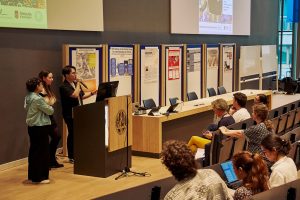
- All rights reserved
In the sector of academic teaching, ENIUGH offers administrative support for bi- and multilateral cooperation in the field of M.A.- and PhD-programmes, by advising individuals and groups on how to obtain EU funding and helping them organise joint summer schools. So far in Europe efforts have been concentrated rather on research than on the educational programs, so an implementation of world and global history in the classroom need attention in the future, because it is vital to the success and visibility of the field. ENIUGH is currently among others involved in the Erasmus Mundus Master program “Global Studies“, which is based upon strong cooperation of universities from Austria, Australia, Cameroon, China, France, Germany, India, Poland, South Africa, the UK, and the US. In this way ENIUGH is also part of the Global Studies Consortium, a network of more than 30 graduate programmes from all around the world, collaborating in teaching and research.
International Collaboration
ENIUGH cooperates with a wide range of European and non-European institutions and encourages institutional as well as individual membership in order to strengthen Global History at all levels of academic activity from research to teaching, from public debate to the support for globalising the teaching of history at the level of secondary education.
 ENIUGH is a founding member of the Network of Global and World History Organisations (NOGWHISTO). Founded in 2008, this global network has been approved an international affiliated committee of the Comité International des Sciences Historiques in 2010. NOGWHISTO offers the chance of collaboration with colleagues from all world regions. ENIUGH is intensively using this opportunity to enhance its efforts to strengthen the field of world and global history. It thus greatly profits from exchange with members from the NOGWHISTO member organisations: the World History Association(WHA), the Asian Association of World History (AAWH) and the African Network in Global History / Réseau Africain d’Histoire Mondiale (ANGH / RAHM). For further information see www.nogwhisto.org
ENIUGH is a founding member of the Network of Global and World History Organisations (NOGWHISTO). Founded in 2008, this global network has been approved an international affiliated committee of the Comité International des Sciences Historiques in 2010. NOGWHISTO offers the chance of collaboration with colleagues from all world regions. ENIUGH is intensively using this opportunity to enhance its efforts to strengthen the field of world and global history. It thus greatly profits from exchange with members from the NOGWHISTO member organisations: the World History Association(WHA), the Asian Association of World History (AAWH) and the African Network in Global History / Réseau Africain d’Histoire Mondiale (ANGH / RAHM). For further information see www.nogwhisto.org
ENIUGH supports the World History section of the bi-annual European Social Science History Conference organised under the responsibility of the International Institute of Social History (Amsterdam). The next congress will be held in 2025.